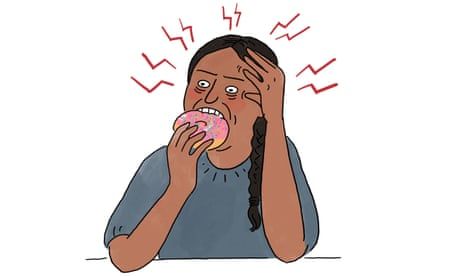
Food quells anxieties, but is a short-term fix that leads to excess weight. Finding other ways to relieve stress is preferable
This wellbeing myth is almost true, says Dr Caroline Apovian, director of the Nutrition and Weight Management Center at Boston University Medical Centre. “Stress can lead to weight gain,” she says, “but it’s not that stress itself, by any metabolic reason, causes weight gain.” Rather, the correlation is that people often turn to overeating as a reaction to stress.
When our body feels it’s in danger, hormones are secreted, one of which is cortisol. Cortisol increases our heart rate, making us feel hyped up and anxious, motivating us to engage in reward-driven behaviour. It’s what would once have given the boost needed to run away from a woolly mammoth attack, but it’s less useful at helping us deal with modern, nonphysical stressors, such as looming deadlines. That’s where food comes in.
Continue reading...